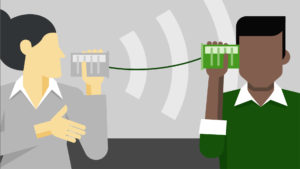We are good at our oratory skills, we consider ourselves as better off communicators, faring well in expressing our feeling, emotions, thoughts and ideas. We have been given enough and more opportunities in and out of stage to sharpen our skills in speaking, to enhance our body language and ameliorate our presentations whether at school, college or office. We would have got innumerable situations to draft letters, write essays, pen stories and give written replies to several questions and queries in those same arenas. For sure we would have received all the teaching, training and knowledge to sit pretty good with respect to our oral and written communication.
But how good are we with respect to listening?
Do we love to listen?
Are we patient enough to listen to someone?
Have we been taught or trained to listen?
Well listening is very important. Communication means understanding. You will be able to understand another person only if you listen with patience. As Stephan Covey says “Seek first to understand and then to be understood.” Research studies show that in general, we are not good listeners. Even though we have been taught and trained to read, speak and write, we have not been taught or trained to listen to any extent. In fact our silence is the best part of any communication, for we listen and win over the other person. Business leaders utilise 60% of their time of communication to listen and understand the other person and his view, before they come out with their own creative responses. The ability to listen wins trust, enhances belief and builds relationships and credibility.

We are given two ears and one tongue as we are expected to listen more and talk less. However, let us not be a cosmetic listener, where we just give a feeling to the speaker that we are listening to him and let our mind wander into other domains. Let us also not be a passive listener where we genuinely listen to the speaker without seeking clarifications or without giving verbal or non-verbal agreements to what we listen. Let us also not be part of those competitive listeners, who listen always to contradict, to argue, to mock at or to express their point of view. Let us be in the band of those active listeners, who listen with patience and empathy and who generate verbal and non-verbal cues of agreement and understanding, seeking worthy clarifications at the pauses of speakers and encouraging the process of speech towards its meaningful completion. Active listeners turn out successful in building rapport and excellent relationship with others.
Good listeners should be fully involved in the moment with an open mind. He should have a sense of curiosity, yet be relaxed. He should help maintain an eye to eye contact with the speaker and try to picture the words in his mind. What separates hearing from listening is that you hear with your ears and listen with your mind. Love to listen.


